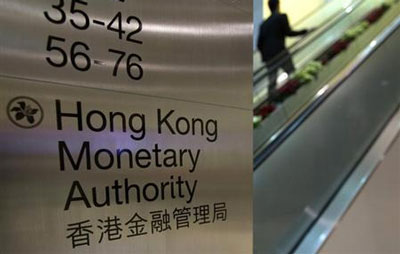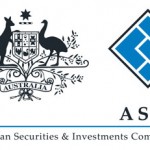HKMA embraces FinTech as it burnishes Hong Kong’s brand to compete as Asia’s financial hub

The Hong Kong Monetary Authority has unveiled a series of policy initiatives for banks to embrace technology, and changed the city’s tax regime to attract corporate treasury departments, as it sharpens its edge to compete with Singapore and Tokyo as Asia’s financial centre.
The HKMA will set up a FinTech Innovation Hub and a FinTech Supervisory Sandbox, two initiatives aimed at spurring banks to embrace technology to make financial transactions safer, speedier and more convenient for consumers.
“Technology has provided many new and very convenient means to conduct financial transactions, ranging from the basic payment and banking services to the more sophisticated trading and investment activities,” the HKMA’s chief executive Norman Chan said at Hong Kong’s annual Treasury Markets Association gathering on Tuesday. “Without compromising consumer and investor protection, the HKMA embraces the use of FinTech and innovation.”
The HKMA’s FinTech hub with the Applied Science & Technology Research Institute will provide a controlled environment separate from banks’ internal systems, where financial institutions can be equipped with the needed resources to develop technology products related to finance.
“While some of the largest banks have built their own laboratories, this new Fintech hub will cater for the big and small institutions alike such that the industry as a whole would be able to adopt new technologies more speedily and in a more collaborative manner,” Chan said.
The regulator’s Sandbox initiative provides a speedier approvals process for FinTech experiments. With the HKMA’s approval, banks can test their FinTech pilot services without requiring a third-party assessment. Once the tests are successful, they can be further tested by the HKMA before being allowed to be launched for public use.
The FinTech hub could be used to test innovations such as biometric authentication technology, such as facial or voice recognition techniques used in the payments industry.
“FinTech is a worldwide trend and Hong Kong banks need to develop in the area quickly,” said the Hong Kong Institute of Bankers’ senior consultant Wilson Chan, who supports the HKMA moves.
Still, the HKMA’s prudence in regulating FinTech companies hasn’t gone by without some criticism.
“Many overseas markets such as the US and Singapore have developed their FinTech quickly,” said ICAP’s North Asia regional chief executive Benny Luk, who said Hong Kong lags behind other cities.
“The HKMA’s new measures will help Hong Kong catch up.”
Hong Kong surpassed Tokyo as the world’s fourth-largest foreign exchange trading centre as of April, bolstered by active transactions of offshore renminbi.
Average daily foreign exchange turnover in Hong Kong surged 59 per cent to US$437 billion in April, compared with the same period in 2013, according to the Bank for International Settlements’ triennial survey of foreign-exchange trading in 60 global markets.
London remains at the top of the league with US$2.43 trillion of daily currency transactions, followed by New York with US$1.27 trillion and Singapore at US$517 billion, the BIS survey said.
Hong Kong’s position could slip, as offshore trading of the renminbi has waned with its depreciation against major currencies.
The yuan has fallen 2 per cent against the US dollar this year, adding to last year’s 5.6 per cent decline. The depreciation has led many Hong Kong depositors to switch their yuan deposits into Hong Kong dollars or US dollars.
This has resulted in a shrinking yuan pool in Hong Kong.
The value of yuan deposits in the city declined 33 per cent to 667.11 billion yuan (HK$774 billion) at the end of July from a year earlier.
“The yuan deposit pool may go up and down with depreciation of the renminbi, but this would not affect demand of the yuan in the long term,” Chan said. “Hong Kong will continue to develop as an international yuan trading centre.”
The city’s significance could also be helped by the Chinese government’s so-called One Belt, One Road project, which is aimed at building roads, railways and transportation infrastructure linking China via the ancient Silk Road with 60 countries in Asia, the Middle East and Europe.
“The One Belt One Road project will involve many international infrastructure investments and fund raising in renminbi,” Chan said. “Hong Kong has the largest pool of yuan deposit outside of China while we also have the largest yuan bonds.”
Source: SCMP





























